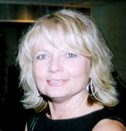MEMENTO meets BODY HEAT mind bending seduction.
Sonia (Ksenia Rappoport), a young Slovenian woman who works as a chambermaid, goes to a speed dating club and meets Guido (Filippo Timi), a soulful-eyed, former cop who waits for her after their apparent disappointing evening without making a love connection. Their chemistry, however, is instantaneous and their connection immediately jump starts with a "double hour" timeframe (hours, minutes momentarily, numerically frozen for whoever notices) signifying an extraordinary moment like a shooting star upon which a wish is made. All lovely and romantic for two lonely people and it just might turn into something more before the night is over. That's where these niceties end because from then on, Director Giuseppe Capotondi lets go of the wheel and takes the audience for a wild ride into mind-playing tricks full of convoluted passages and secret chambers where "nothing and nobody is what it seems."
When Sonia goes away with Guido into the country, he takes her to a secluded mansion where he works as a security guard for a wealthy art collector. It turns out that Guido is a widower, still not over his wife's death, but just as Sonia gets closer and breaks down his barrier, the estate is overrun by burglars ransacking the place. Guido gets shot and killed while the bullet that goes through him gets planted into Sonia's forehead.
After that traumatic scenario, Sonia's memory and present frame of mind blur as she feels Guido's presence everywhere she turns. Her imagined sightings and whispers take over, creating confusion especially when Guido's friend who is a detective keeps asking her questions about the tragic event as well as her past in her home county, Slovenia.
Adding to this male-female connection is the blending of different cultures and their clashing values. As younger generations escape from former repressive societies, they emigrate into the bottom rung of low paying jobs and often find themselves jumping out of the frying pan into the fire. They fall into schemes for quick money without remorse until their consciences surface to overturn their unethical practices that are camouflage as tactics for survival. In the end, decisions are made for survival of the fittest, the craftiest and those whose ethics remain intact.
Clever twists and interconnecting turns with thriller-punctuated music have the viewer in its grips, waiting for the inevitable convergence and have all loose ends neatly tied. That doesn't happen in this tightly woven tale of suspense that still has you guessing until the very end as to whether the mind is as brilliant as scientists say it is or just a trap that collects bits and pieces of collective memories, rearranging their meaning for a convenient end-all.
The film premiered at the Venice Film Festival in 2009 where Rappoport won the Volpi Cup award for Best Actress and screened at the Toronto International Film Festival. It opens at select theaters April 15.
The film premiered at the Venice Film Festival in 2009 where Rappoport won the Volpi Cup award for Best Actress and screened at the Toronto International Film Festival. It opens at select theaters April 15.

